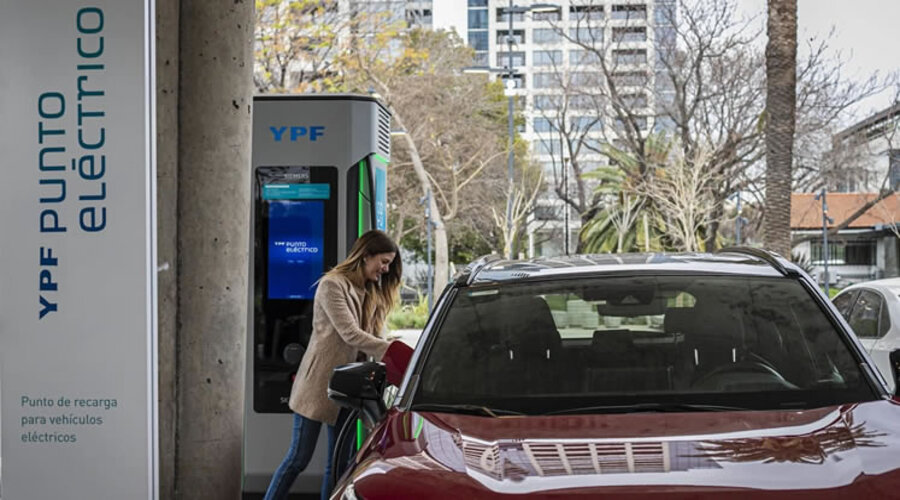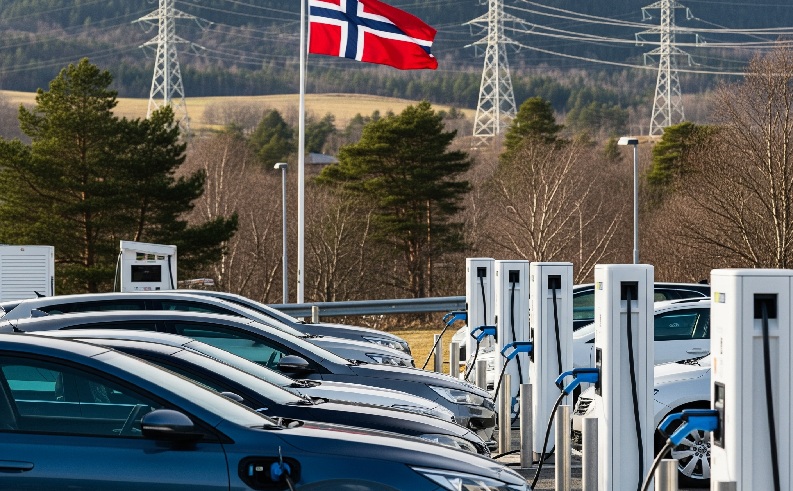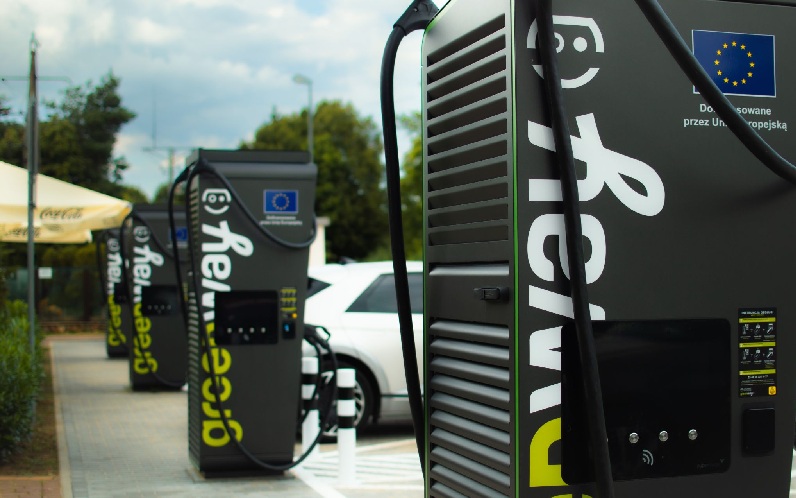The presentation in the Argentine Congress of a bill proposing tax incentives for installing electric vehicle (EV) chargers and CNG dispensers at service stations has revived the discussion about the role these establishments can play in the energy transition.
Industry representatives warn that, beyond the legislative intention, technical, regulatory, and economic barriers continue to hinder implementation.

National Deputy for Córdoba, Juan Fernando Brügge (Christian Democracy, Federal Meeting bloc), introduced in Congress an ambitious National Programme to Promote the Use of CNG and Electric Energy for Vehicles, aiming to reactivate the energy sector through tax benefits and financing facilities.
The initiative proposes deductions of 30% for individuals and 40% for legal entities on investments intended for the conversion or acquisition of CNG or electric vehicles, capped at 20% of annual net income.
The excess may be applied over the next five fiscal years.
Additionally, the project includes access to credit lines from the Banco de la Nación Argentina under preferential conditions — reduced interest rates, five-year amortisation, and six months’ grace period — provided the vehicle remains owned by the beneficiary for at least three years.
These measures aim not only to encourage sustainable vehicle acquisition but also to create a favourable environment for installing electric charging infrastructure at service stations — a critical link in the energy transition — by boosting both the market and investment capacity of the sector.
Overview of Argentina’s public charging network
However, service stations note obstacles not addressed by this project, which impede the development of the charging network in Argentina.
Alberto Boz, President of the Argentine Federation of Interior Fuel Retailers (FAENI), highlights the national energy context as a key factor.
“There are several thermoelectric plants in the country, meaning diesel and fuel oil are burned to generate electricity. From this technical standpoint, it makes no sense to burn fossil liquid fuel — even if blended with biodiesel — to generate electricity and then plug in a car,” he says in an interview with Mobility Portal.
Boz explains that, unlike countries dependent on fuel imports, Argentina produces oil and gas and has the potential of Vaca Muerta as a growth source.
“With further development of Vaca Muerta, we will produce more gas — a lot more,” he stresses, emphasising that this scenario should be considered when shaping electric mobility policies.
He also warns about the infrastructure needed for fast charging.
“You need very high power, which means a full installation to provide the power cars require, and some provinces face problems in this regard,” he asserts.
This limitation entails additional investment in electrical works, which many service stations are unable to undertake without external support.
On the regulatory front, Boz reminds that “no one can sell electricity except the energy distributor of each province.”
This means that in jurisdictions like Santa Fe, chargers installed at service stations cannot sell the electricity they supply.
“They can charge a service fee or a parking charge, disguise it however they want, but you cannot sell electricity yet in the province of Santa Fe because the regulation has not been adapted to the reality we face,” he explains.
The perspective of fuel retailers
Juan Manuel Rumin, Vice-President of the Chamber of Service Stations, Garages and Related Businesses of Rosario (Cesgar), agrees that the main obstacle for charger installation is current regulation.
“Many provinces with provincial distributors have not authorised private electricity sales,” he says.
The second challenge he points to is the lack of available electrical capacity.
“There is not enough installed power to supply these devices,” he states.
This deficit exists not only in remote areas but also in medium-sized cities where the grid was not designed for high-power consumption.
Added to this is the low number of electric vehicles in circulation, which affects the economic equation.
According to Rumin, a charger’s profitability depends on a user volume that is still limited. “Then you have the real matter of vehicle numbers that drive the business profitability equation,” he clarifies.
He also notes that the service model differs from traditional fuel dispensers.
“Stations were designed for vehicles to arrive, refuel in a short time, and continue their journey. Current electric chargers require significant charging time, so parking space rather than a refuelling bay must be considered,” he explains.
A transition that requires coordination
The bill under discussion includes tax benefits for those installing this type of infrastructure, aiming to accelerate the adoption of cleaner transport technologies.
However, sector stakeholders argue fiscal measures must be accompanied by regulatory changes and an investment plan for electrical grids to sustain future demand.
International experience shows that public charging infrastructure deployment requires a comprehensive approach.
In countries where e-mobility grew rapidly, economic incentives were complemented by regulations facilitating grid access, connector standardisation, preferential tariffs, and funding for network upgrades.
For Boz, parliamentary debate is an opportunity to prepare the regulatory framework and infrastructure electromobility will demand in the coming years. “We must adapt the regulations to the reality ahead,” he concludes.
READ MORE
-
From threat to grid ally: Norway no longer fears blackouts from rising EV energy demand
Ten years ago, Norway’s fast BEV growth worried energy firms. Not anymore. But what if all vehicles, even heavy ones, were replaced by electric models?
-
From Superchargers to eMobility AI: former Tesla engineer positions Quantum Drive as the “Google Maps for EVs”
Daniel Fernández, who led Tesla’s Supercharger rollout in the UK and helped develop Wallbox’s first public DC charger, is now driving forward a Spanish startup that offers real-world route planning for EVs. Based in Valencia and backed by Lanzadera, Quantum Drive aims to scale its technology across Europe.
-
GreenWay adds 68 new ultra-fast charging hubs in Poland and Slovakia
GreenWay has completed 368 charging points at modern hubs — one of the largest infrastructure investments in its history.









